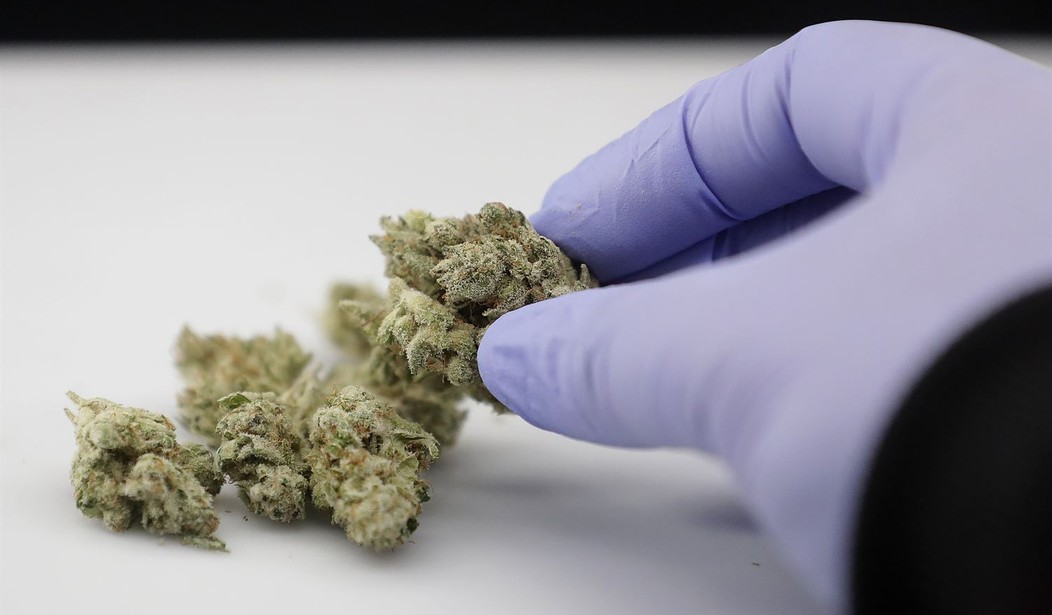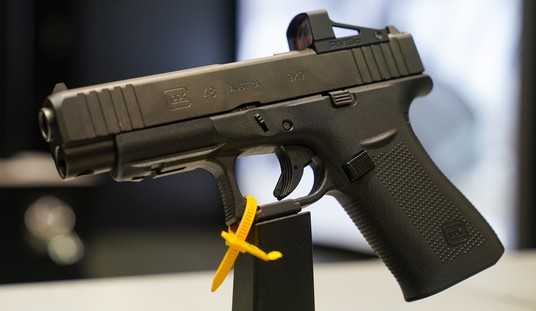The Second Amendment Foundation found a very interesting co-plaintiff in its new lawsuit taking on the federal prohibition on gun possession for “unlawful users of drugs”; the District Attorney in Warren County, Pennsylvania. Robert Greene has been the top prosecutor in the county since 2013, but he’s also the possessor of a medical marijuana ID card in the state. According to the DOJ, that means he’s forfeited his right to keep and bear arms; a position that attorneys Adam Kraut and Joshua Prince say flies in the face of the Bruen decision.
In their initial complaint in Greene v. Garland, et al (the lawsuit also names ATF Director Steve Dettelbach and FBI Director Christopher Wray as co-defendants), the pair argue that the federal law enforced by the plaintiffs prohibits a particular class of persons “from acquiring, keeping, possessing, and utilizing firearms and ammunition, in direct violation of the Second Amendment to the United States Constitution.”
Specifically, even though the U.S. Supreme Court in Bruen declared that “[t]he test we set forth in Heller and apply today requires courts to assess whether modern firearms regulations are consistent with the Second Amendment’s text and historical understanding,” Bruen, 597 U.S. at 26., Plaintiff Greene and SAF’s similarly situated members are unable to acquire or possess a firearm pursuant to 18 U.S.C. § 922(g)(3) for which there is no historical analogue.
Peaceable persons have always been free to carry arms for self-defense and other lawful purposes.
A violation of 18 U.S.C. § 922(g)(3) is a felony subject to up to 10 years’ imprisonment and a fine of up to $250,000, for which a conviction would prohibit the Plaintiff Greene and SAF’s similarly situated members from being able to purchase, possess, and utilize firearms and ammunition, pursuant to 18 U.S.C. § 924(a)(2).
To that end, the Firearms Transaction Record, ATF Form 4473 (5300.9) (“4473”) provides the following statement to individuals seeking to purchase a firearm: “Warning: The use or possession of marijuana remains unlawful under Federal law regardless of whether it has been legalized or decriminalized for medicinal or recreational purposes in the state where you reside.”
The current restrictions found in 18 U.S.C. §§ 922(g)(3), (d)(3), and their implementing regulations, as they pertain to medicinal marijuana, infringe upon the individual’s right to keep and bear arms, as they arbitrarily deny entire classes of persons in direct defiance of Heller and Bruen and lack any direct or analogous historical support deeply rooted in this nation’s history and tradition.
The federal government has had close to two years to discover any analogues that would demonstrate these types of bans are consistent with the national tradition of gun ownership, and the only bits of evidence the DOJ has been able to muster are some laws prohibiting the possession of a firearm while intoxicated, as well as some 18th and 19th-century statutes that barred gun ownership for entire classes of people; from freed slaves to practicing Catholics. Those historical statutes haven’t satisfied some federal judges, who’ve already declared that 18 U.S.C. § 922(g)(3) is a violation of the Second Amendment regardless of whether or not someone possesses a valid medical marijuana license.
The argument against 922(g)(3) is even stronger, however, when we’re talking solely about the residents in the 38 states where medical marijuana has been approved in defiance of federal law. As Kraut and Prince point out, the medical use of cannabis was well established by the 19th century, and yet there are virtually no prohibitions on gun ownership for marijuana users to be found at any level of government until the 20th century; long past the applicable period established by the Supreme Court, which focuses on 1791 and, to a lesser degree, 1868.
The Gun Control Act of 1968, which was approved fully a century after the ratification of the Fourteenth Amendment, established that marijuana users are prohibited from lawfully purchasing or possessing firearms. That law has left millions of folks like Greene with a Hobson’s choice between their health and safety. As a prosecutor who’s put countless violent criminals behind bars, Robert Greene has good reason to both keep and bear arms for self-defense, but because he wants to use marijuana as medicine he’s “currently abstaining from attempting to purchase, possess, and utilize a firearm and/or ammunition for fear of arrest, prosecution, incarceration, and/or fine[s]” under federal law.
Earlier this month the Department of Health and Human Services released documents outlining the FDA’s support for rescheduling marijuana as a Schedule III drug, which would allow it to be prescribed medicinally. If the DEA decided to take that step then Greene v. Garland would probably be mooted, but for the time being the law still precludes gun owners from using marijuana recreationally or medicinally, and the new lawsuit on behalf of SAF and the Warren County DA is a good vehicle to bring this issue before the courts and hopefully obtain the relief that folks like Greene have been asking for.









Join the conversation as a VIP Member